The Sound of Sheep:
A Communal Gaze/Graze
2021
Participatory sound and video installation presented at AssemblyTV 2021 — a streaming edition of the annual Art and Social Practice conference at Portland State University
Collaboration with Danielle Moser, with participation from online event attendees
During Winter and Spring seasons in the covid pandemic, I lived next door to a flock of sheep. I grew to love the sheep and they became a grounding part of my routine. During lambing season, I checked the fields daily and performed lamb care when needed. The sheep were my friends, and they were pretty funny.
This interactive film and audio installation used a Zoom meeting and a pre-recorded soundscape as tools to explore another person’s labor by overlaying the sounds of one place on top of another. Originally streamed live on youtube, this piece brought the sounds of a Boiling Springs, PA sheep pasture into the spaces of project participants. Pointing our cameras outward into the environment that surrounded us, I asked everyone to be still, listen, watch, and imagine sheep grazing around them.
click here to view and listen to the recorded livestream.
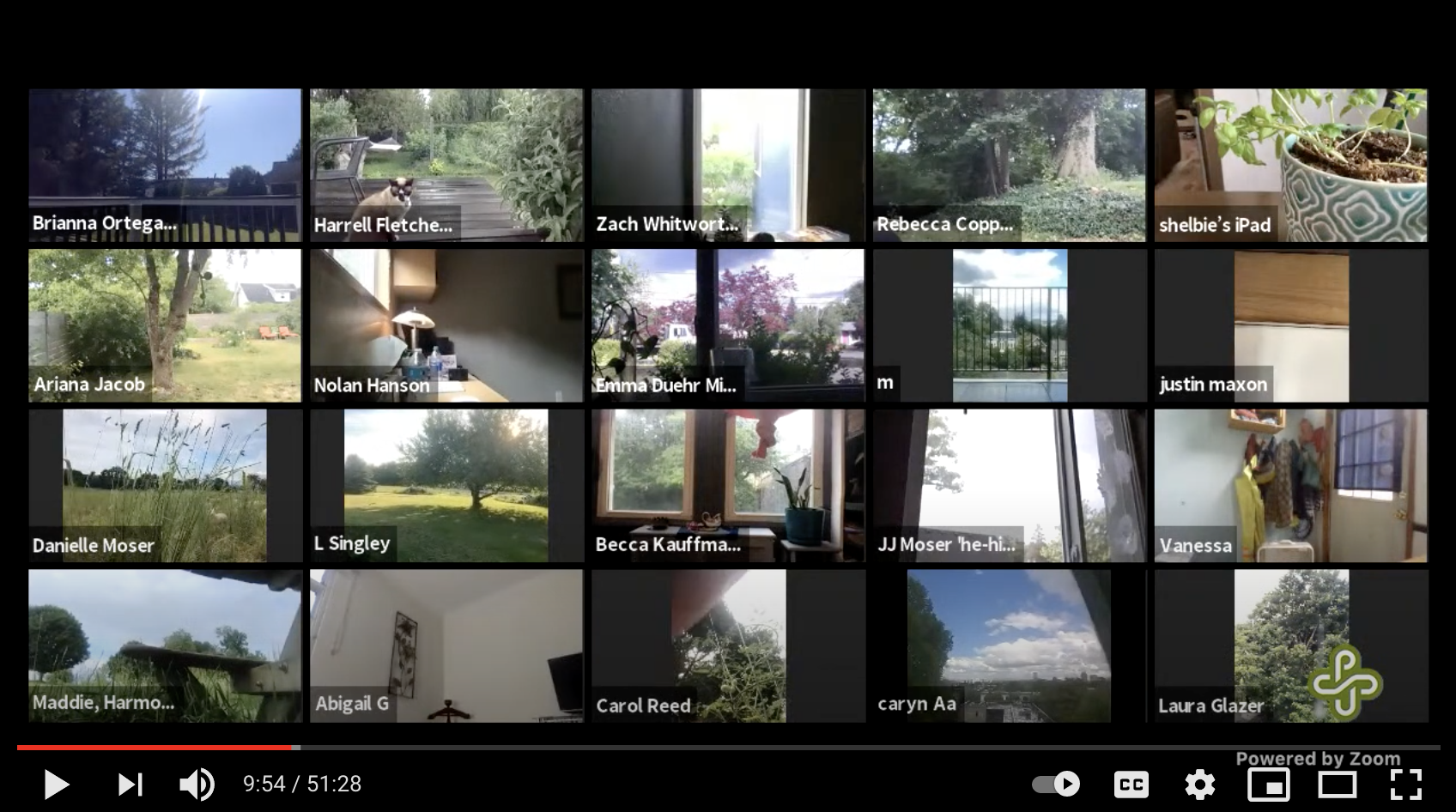
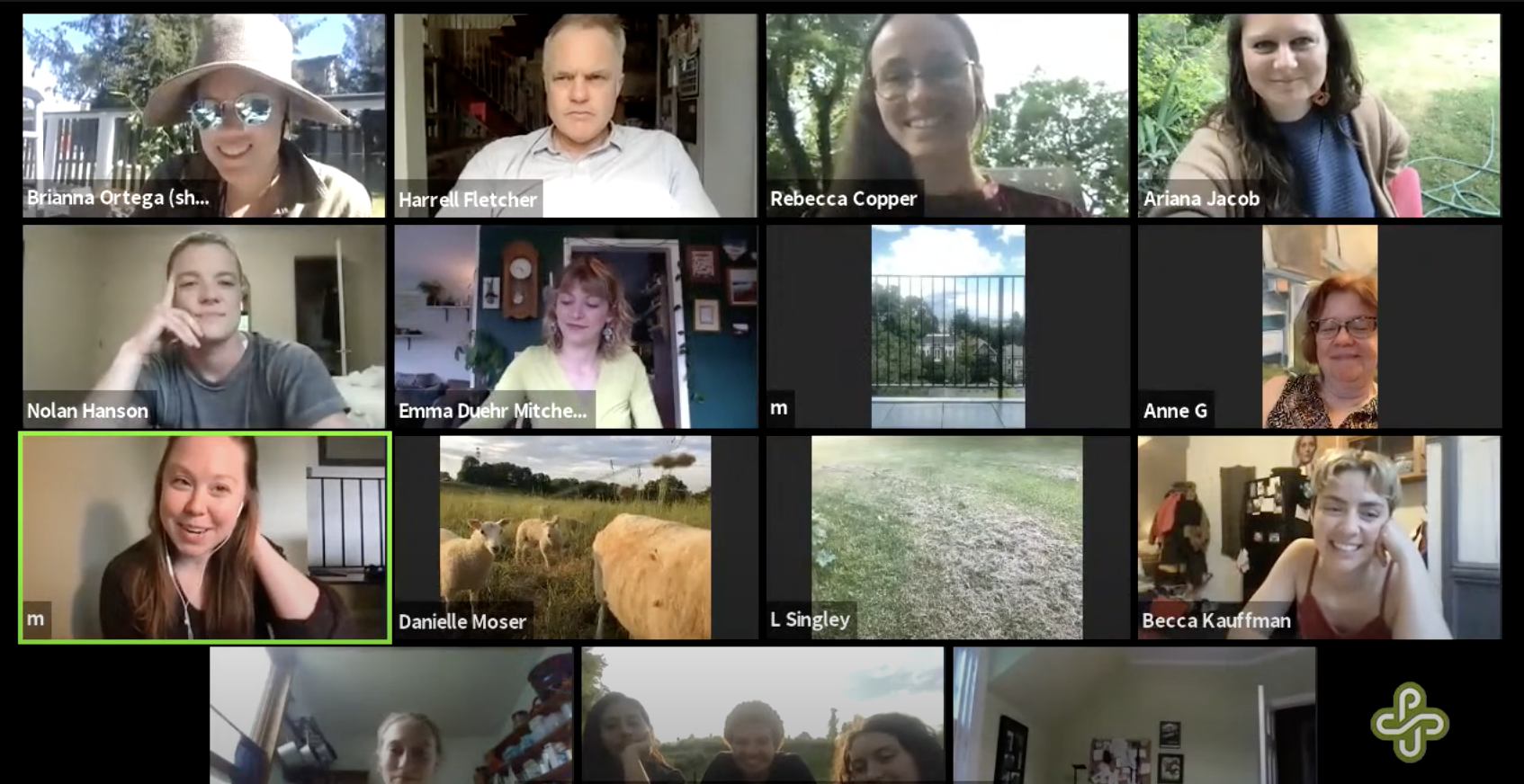
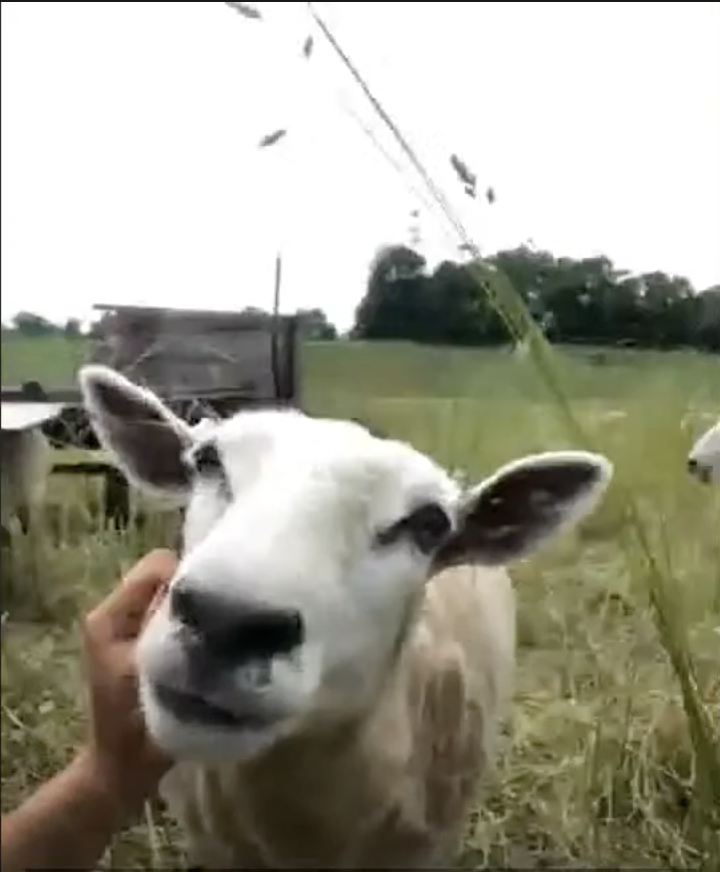
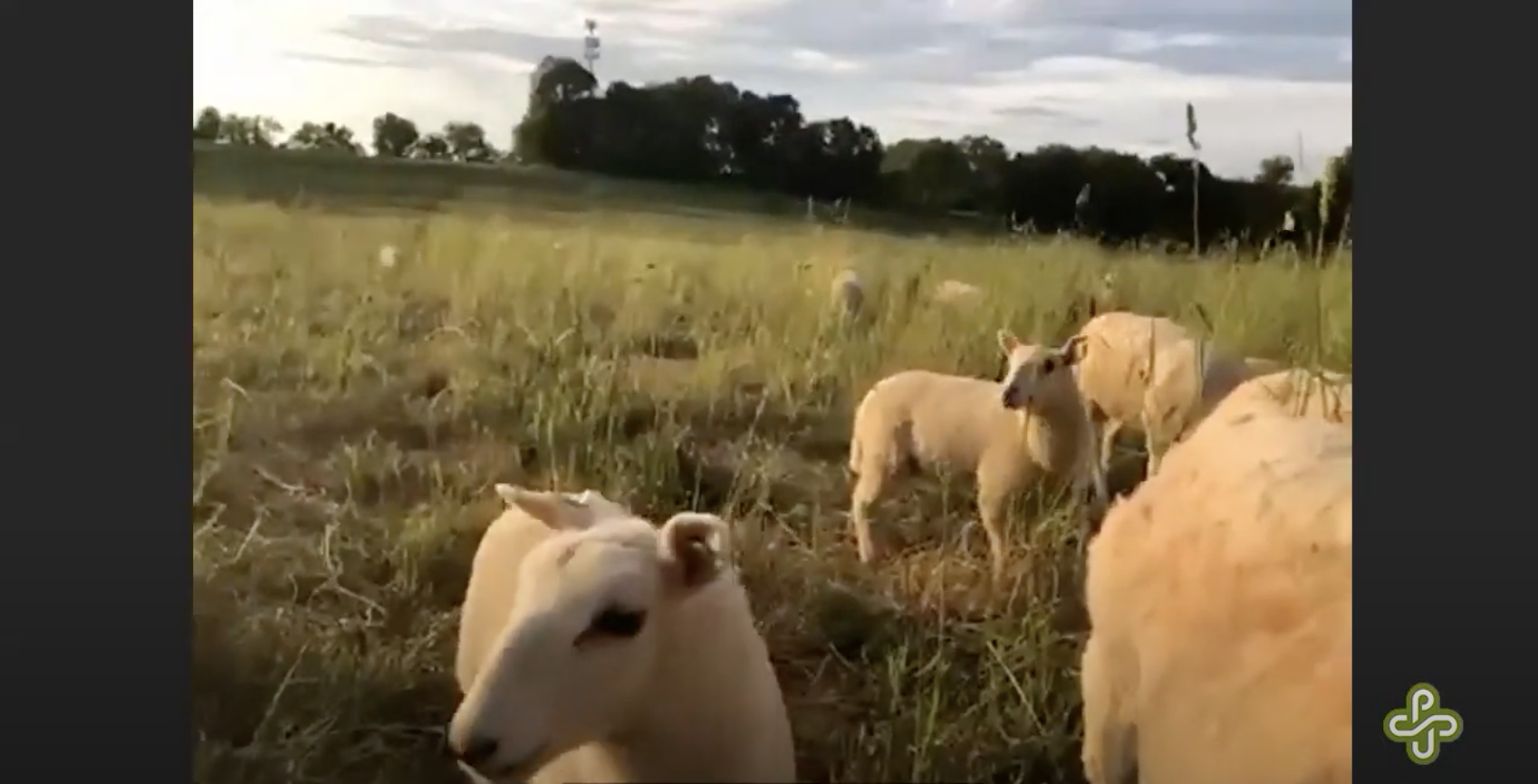
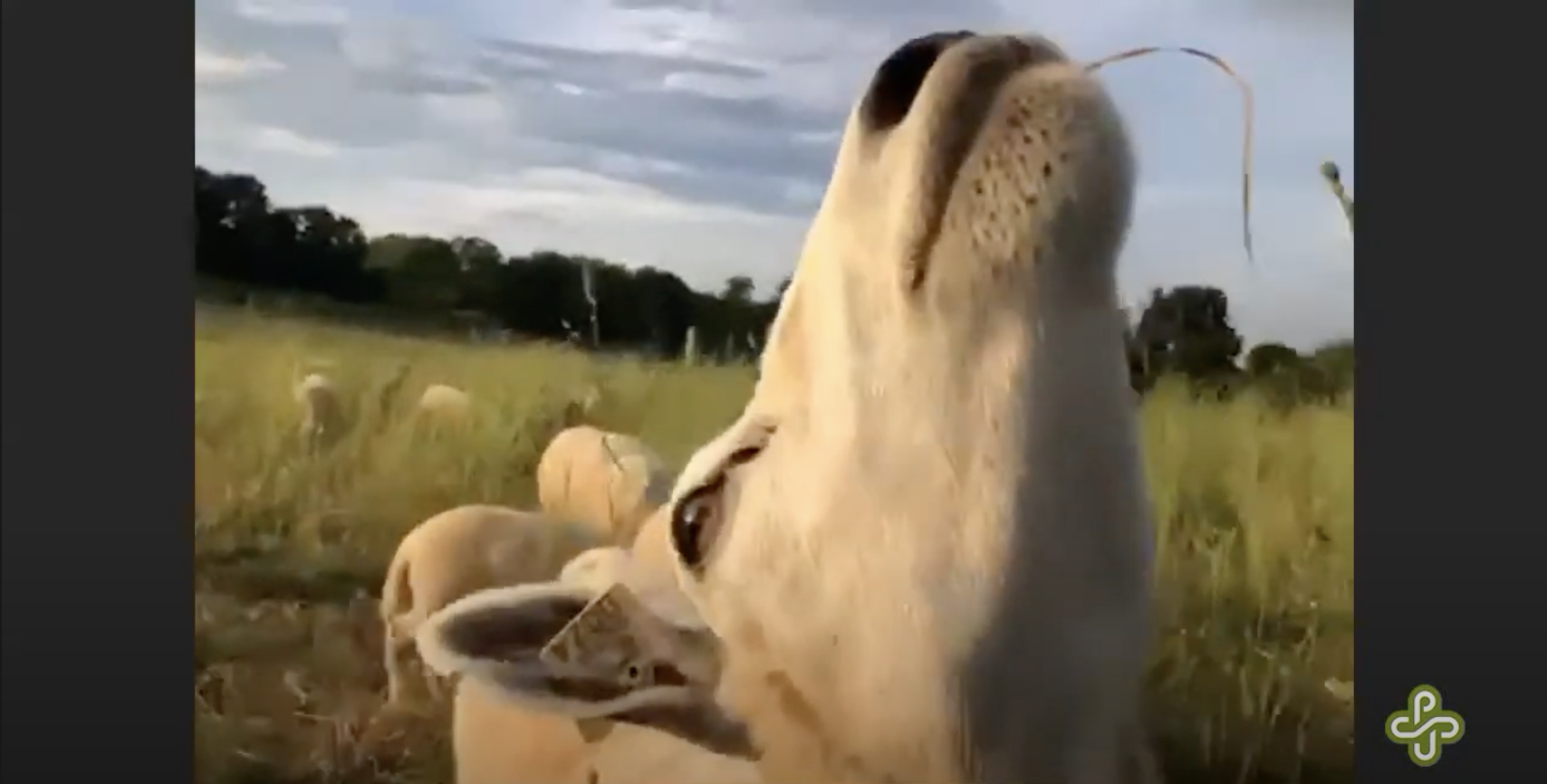
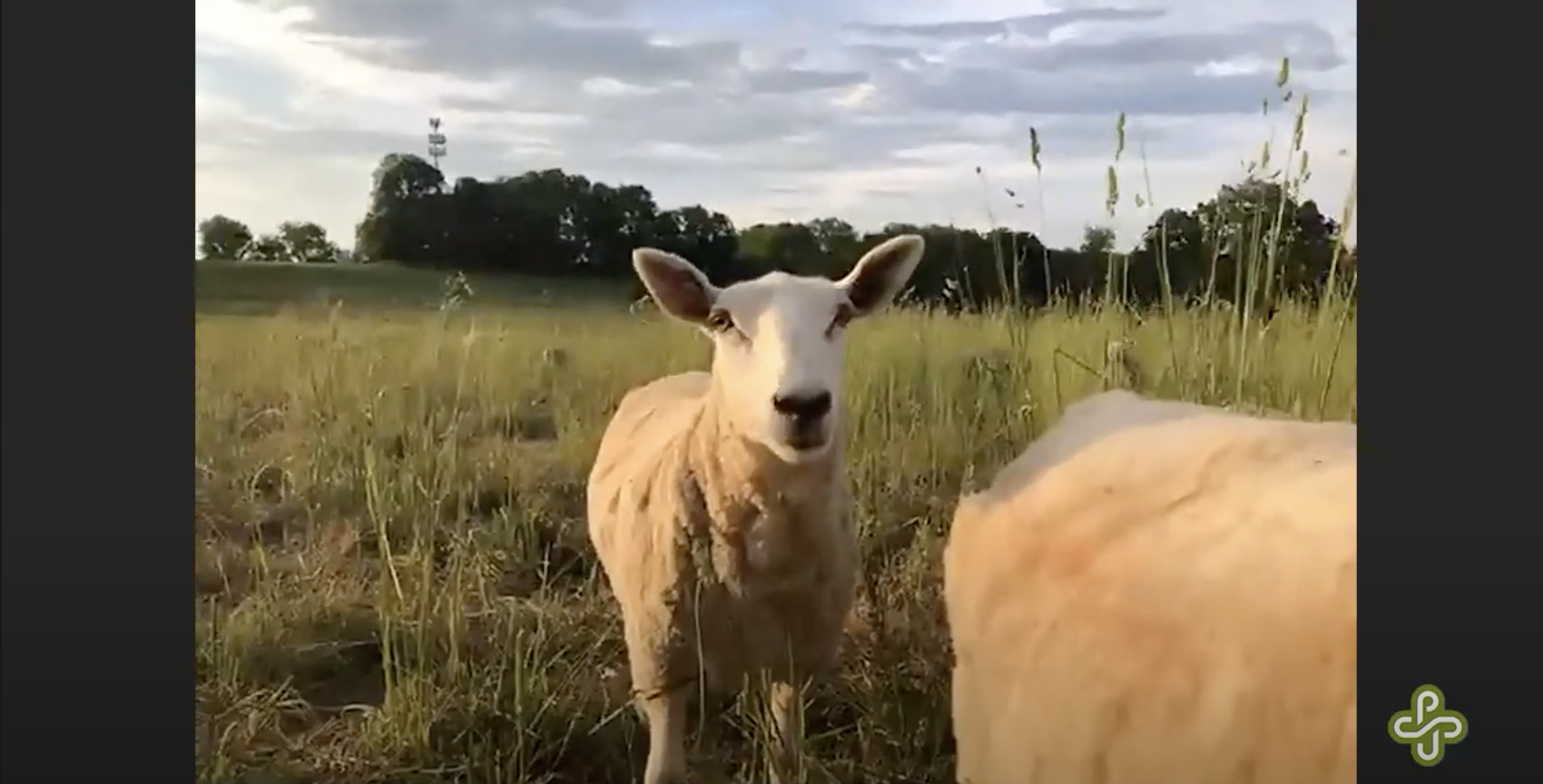
The Sound of Sheep considers the often-oversimplified dissonance between rural and urban spaces, in addition to the tight link between humans, machines, and domesticated livestock. Sound is a particularly direct way to explore some of these relationships, as it communicates the feeling of a particular environment. When asking participants to overlay the sheep soundscape over their own places, I invited them to more literally engage with their relationship to space, other people’s work, and livestock. Seeing this activity as a mediation further asks—what does it mean mediate on another person’s labor? In what ways are we separated from the labor of others in our current economy? This project uses physical, experiential methods to look critically at the ways we all “cultivate” space, and the ways that agricultural cultivation is often distanced and romanticized when taken out of context.